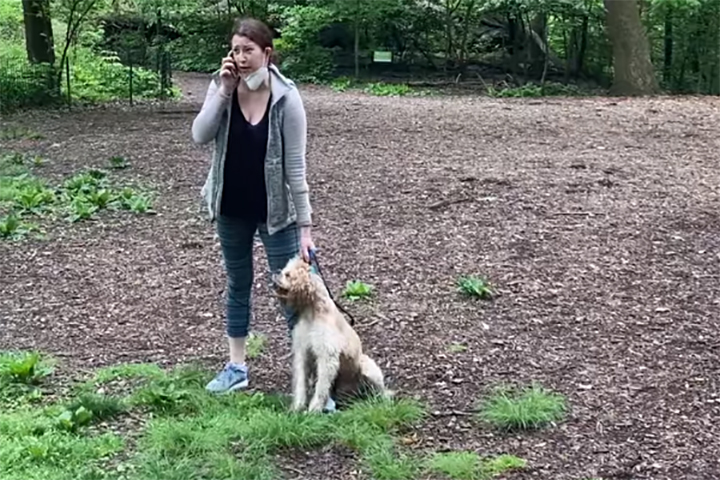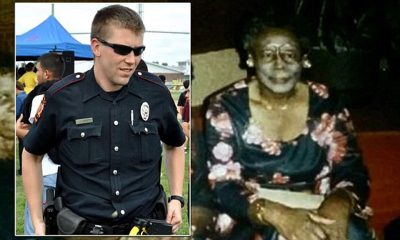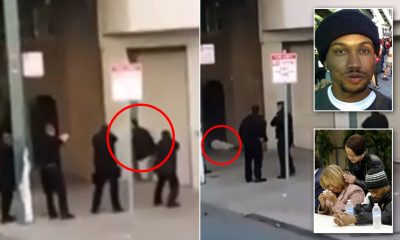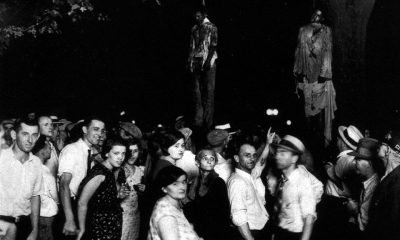Karens
Central Park Karen: A Deep Dive Into Consequences, Complexity, And Redemption

Living In Hiding And Employment Struggles:
Amy Cooper, known as “Central Park Karen,” lives in solitude, terrified by a video that made her famous three years ago. In a Newsweek opinion article, she revealed that she remains in hiding, immobilized by public attention. Cooper was fired from Franklin Templeton Investments after a viral incident with a black birdwatcher. Since then, her reemployment efforts have failed, leaving her financially and emotionally vulnerable. Hate mail with unsettling threats keeps flooding her email, compounding her everyday struggles.
A New York City woman has lost her job after a video of her racially-charged confrontation with a black man went viral. The man was birdwatching in Central Park and recorded the encounter.
— CBS Mornings (@CBSMornings) May 27, 2020
As @MolaReports, state lawmakers now want to make calls like that a possible hate crime. pic.twitter.com/a5ZvwVAxM6
Conflict In Central Park Karen And Misperceptions:
Amy Cooper’s public collapse began with a heated Central Park meeting with black birdwatcher Christian Cooper (no related). Amy called the police on Christian, falsely claiming to be threatened, according to footage. The video’s fallout was immediate and harsh, even if her charges were dropped. Amy Cooper says the public’s impression of the event is warped since she felt intimidated and scared due to trauma. She claims her actions were meant to discourage Christians from a perceived danger, not racial hatred.
Personal And Professional Effects:
Besides Amy Cooper’s career, the “Central Park Karen” event had lasting effects. Cooper wrote in Newsweek about the enormous impact on her family, especially when caring for a terminally sick dad. As she battles unemployment and a relentless public narrative, her mental health suffers. When the false reporting charges were dropped, Cooper lost a wrongful termination claim against her former employer. She highlights the discrepancy between popular perception and her reality, emphasizing the incident’s complexity and the need for subtlety. Cooper’s effort to tell her tale shows the long-term effects of being called a “Karen” in cancel culture.
Read Also: “Soho Karen”: Legal Battles, Social Impact, And Calls For Change
Legal Actions And Stigma:
After the Central Park altercation, Amy Cooper was charged with false reporting. These accusations were withdrawn when she underwent racial prejudice treatment. The event remains stigmatized despite the judicial conclusion. Amy believes heavy media and political pressure shaped the first allegations and public opinion. This stigma has damaged her career, emotional, and general well-being. Her prior experiences and the rural, secluded environment of the meeting illustrate the difficulties of balancing emotional anguish, public scrutiny, and legal implications.
Amy Cooper writes in her op-ed that “Karen” has been weaponized in her circumstances. The word, once used to indicate entitled and demanding conduct, has changed with social media and cancel culture. Cooper claims the term oversimplifies her perspective and prevents a deeper view of the situation. The moniker “Karen” has become a societal shorthand for white women who victimize people of color. By examining this designation, Cooper illuminates the broader significance of such cultural occurrences and their possible effects on those caught in the crossfire.
Reconciliation And Unanswered Outreach:
In her Newsweek article, Amy Cooper says she has repeatedly tried to contact Christian Cooper, the birdwatcher involved in the event. Despite these attempts, she claims no response. A lack of communication complicates the aftermath of the viral confrontation. Amy wants reconciliation and tries talking to Christian, but his silence is unsolved. The effort to reconcile highlights the difficulties and obstacles of moving on after a widely publicized and polarizing occurrence.
After the event, Amy Cooper discusses their different paths. Christian Cooper has written a DC Comics book and started a National Geographic program as she struggles with unemployment and public vilification. The story is further complicated by their different post-incident experiences, showing how people react to widely publicized occurrences.
Social Media, Cancel Culture, And Public Perception Complexity:
Social media exacerbated the Central Park Karen incident. The video’s quick propagation on Twitter sparked an immediate public response. Amy Cooper discusses cancel culture’s relentlessness and devastating influence on her life. The frequent internet hatred, hate mail, and threats make rebuilding her life harder.
The event also concerns the intricacies of public perception. Amy believes the public’s view of the situation has been warped, urging a more thorough investigation. The viral video, frequently a two-minute clip, fails to capture the whole encounter. Amy Cooper urges the public to study the complete story and warns against quickly classifying someone based on scant facts. The Central Park Karen incident illustrates the dangers of digital-age social media-driven public debate.
Relationship And Mental Health Effects
In addition to her professional and legal concerns, “Central Park Karen” has hurt Amy Cooper’s emotional health and relationships. Her Newsweek op-ed discusses the emotional toll of hate mail and threats. Trauma, job loss, and slander have harmed her. Amy talks about fear and the emotional toll of virality. Her confession of caring for her terminally ill father muddied the tale and affected her family.
Amy Cooper examines how society’s fast judgment affects mental health. Her situation illustrates how cancel culture and online shaming hurt. Her fragility and emotional distress illuminate internet-related social repercussions.
Learning And Personal Growth
Amy Cooper writes about her observations and insights from the event. She seeks pity and forgiveness despite difficulties, showing human growth. Her description offers her perspective and frightened judgments. This reflection asks the public to examine the incident’s details.
Amy acknowledges her mistakes but thinks the public attention and long-term repercussions may outweigh the incident. The case of “Central Park Karen” and her mental health issues illustrates that high-profile scandal victims deserve more compassion. Amy’s story encourages atonement and personal growth in the face of public criticism.
More Significant Racism And Accountability Discussion
The Central Park Karen incident happened amid a national discussion on race and accountability after George Floyd’s death in May 2020. Amy Cooper discusses racism, privilege, and personal experience in her op-ed. She believes that fear and panic under a perceived threat precipitated the occurrence, not discrimination.
Amy questions the accusations’ intersectionality and wants behavior analysis. The event questioned prejudices and social responsibility. Amy Cooper discusses racial dynamics and how individuals respond in heated situations. Her narrative shows the challenges of addressing structural issues while respecting the compassion of persons trapped in these intricate situations.

-

 States2 weeks ago
States2 weeks agoPearlie Golden 93-Year-Old Black Woman Shot By Texas Cop
-

 States2 weeks ago
States2 weeks agoLayers Of Racial Tension The Mario Woods Tragedy And San Francisco Path To Justice
-

 States2 weeks ago
States2 weeks agoTragedy Unveils Racial Tensions Tarika Wilson Story
-

 States2 weeks ago
States2 weeks agoLynching Of Thomas Shipp Tragedy Of Racism Echoes Through History
-

 States2 weeks ago
States2 weeks agoThe Killing Of Terence Crutcher And The Fight For Racial Justice

















You must be logged in to post a comment Login